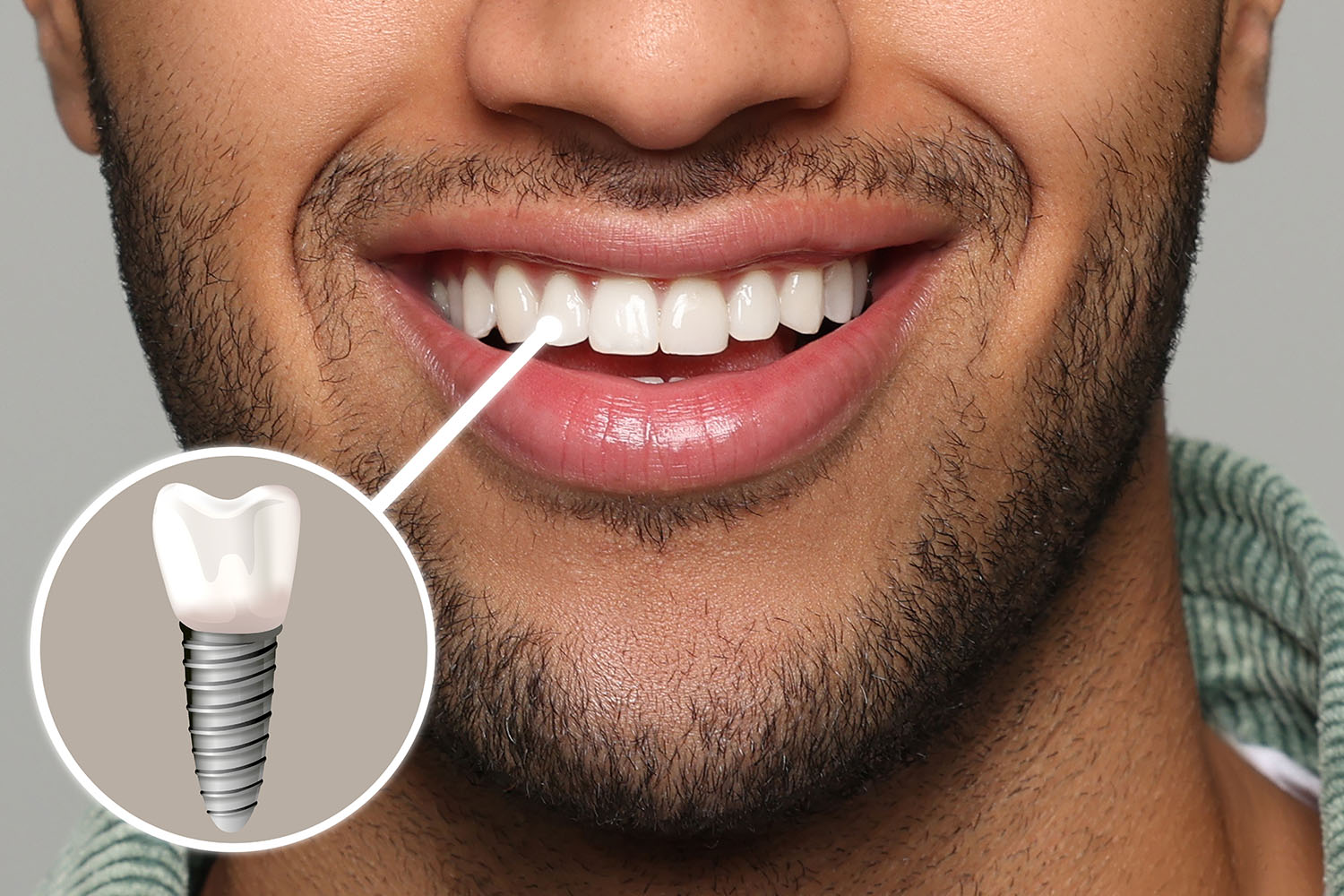Overview
Tooth implants have revolutionized the field of dentistry, offering a durable and aesthetically pleasing solution for those with missing teeth. This modern marvel not only restores the functionality of natural teeth but also enhances the confidence of countless individuals worldwide. As we delve into the intricacies of tooth implants, let’s explore their benefits, the procedure, and the latest international research highlighting their efficacy.

What is a Tooth Implant?
A tooth implant, or dental implant, is a surgical component that interfaces with the bone of the jaw to support a dental prosthesis such as a crown, bridge, denture, or facial prosthesis. It acts as a replacement for the root of a missing tooth, providing a strong foundation for permanent or removable replacement teeth that are made to match your natural teeth.
Benefits of Tooth Implants
Enhanced Appearance and Comfort: Tooth implants are designed to fuse with bone, becoming permanent. They look and feel like your own teeth, eliminating the discomfort associated with removable dentures.
Improved Speech: With poor-fitting dentures, the teeth can slip within the mouth causing you to mumble or slur your words. Tooth implants allow you to speak without the worry that teeth might slip.
Easier Eating: Sliding dentures can make chewing difficult. Tooth implants function like your own teeth, allowing you to eat your favorite foods with confidence and without pain.
Durability: Implants are very durable and will last many years. With good care, many implants last a lifetime.
Improved Oral Health: Tooth implants do not require reducing other teeth, as a tooth-supported bridge does. Because nearby teeth are not altered to support the implant, more of your own teeth are left intact, improving long-term oral health.
The Tooth Implant Procedure
The process of getting a tooth implant involves several steps:
Initial Consultation: Your dentist or oral surgeon will conduct a comprehensive examination, including X-rays and molds of your teeth and jaw.
Bone Grafting (if needed): If your jawbone isn’t thick enough or is too soft, you may need bone grafting before you can have dental implant surgery.
Implant Placement: The implant is surgically placed into the jawbone. As the bone heals, it grows around the implant, anchoring it securely in the jaw.
Abutment Placement: Once the implant is securely bonded to the jawbone, an abutment (a small connector post) is attached to the post to hold the new tooth.
Artificial Tooth Placement: Finally, a crown, which is the artificial tooth, is attached to the abutment.
International Research and Advances
The success rate of tooth implants is high, with studies showing success rates of up to 98%. Research continues to enhance the materials and techniques used in dental implantology:
Material Innovations: Recent studies have focused on the development of new materials that enhance the osseointegration process (the direct structural and functional connection between living bone and the surface of a load-bearing artificial implant). For instance, titanium alloys and zirconia implants are being extensively studied for their biocompatibility and durability .
Digital Dentistry: Advances in digital imaging and planning have significantly improved the accuracy and predictability of tooth implant procedures. Computer-guided implant surgery allows for precise placement, minimizing the risk of complications .
Bone Regeneration Techniques: New techniques in bone grafting and regeneration are enabling more patients, including those with significant bone loss, to receive implants. Growth factors such as platelet-rich plasma (PRP) and platelet-rich fibrin (PRF) are being utilized to enhance bone healing and integration .
Tooth implants represent a significant advancement in dental technology, offering a reliable and long-lasting solution for missing teeth. The procedure not only restores the aesthetic appeal of a natural smile but also ensures optimal functionality, greatly improving the quality of life for patients. As international research continues to push the boundaries of what is possible, the future of tooth implants looks brighter than ever, promising even more effective and accessible solutions for dental restoration.
If you’re considering a tooth implant, consult with your dentist to explore your options and determine the best course of action for your dental health. With the right care and professional guidance, tooth implants can be a transformative investment in your overall well-being.



